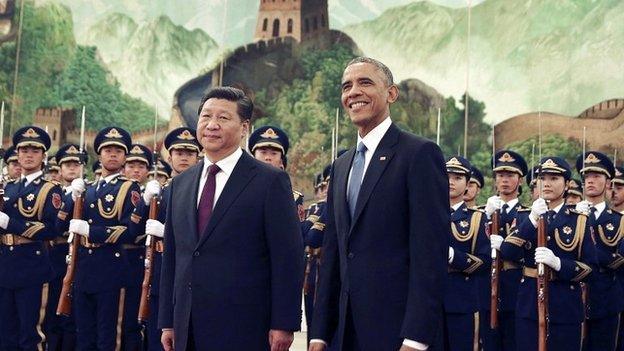Dutch government taken to court on climate change
- Published
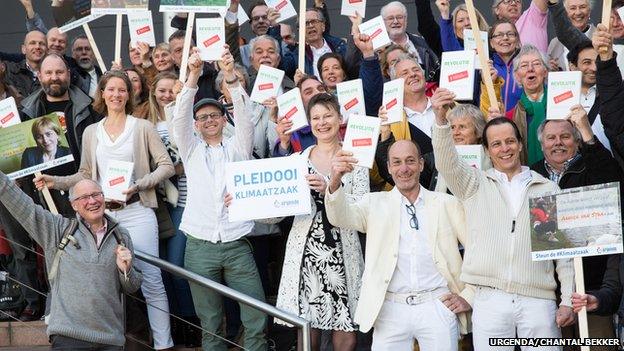
Urgenda Foundation director Marjan Minnesma (centre) joined campaigners at the hearing
Campaigners in the Netherlands are taking the government to court for allegedly failing to protect its citizens from climate change.
The class action lawsuit, involving almost 900 citizens, aims to force the government to cut emissions faster.
The first hearing opened in the Hague on Tuesday.
It is said to be the first time in Europe that citizens have tried to hold a state responsible for alleged inaction on climate change.
It is also believed to be the first case in the world in which human rights are used - alongside domestic law - as a legal basis to protect citizens against climate change.
The campaigners, led by the Urgenda Foundation, want the judges to compel the Dutch government to reduce its carbon emissions to 40% below 1990s levels by 2020. , external
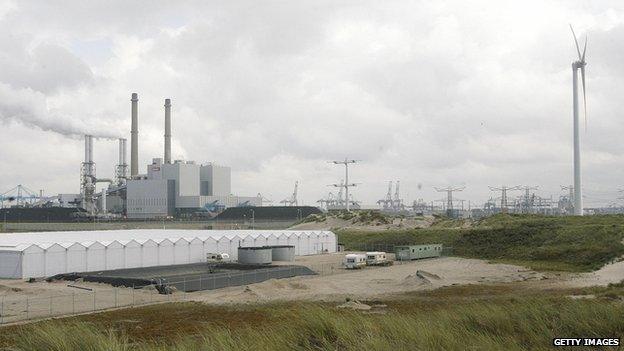
The EU has pledged to cut CO2 emissions by 40% by 2030

Prominent Dutch DJ Gregor Salto is among those taking part in the lawsuit
The activists also want the court to declare that global warming of more than 2C will lead to a violation of fundamental human rights worldwide.
Among the plaintiffs is Joos Ockels, wife of the late astronaut Wubbo Ockels, along with DJ Gregor Salto and Nasa climate scientist Prof James Hansen.
"Everybody is waiting for the government to take action but the government has done so little. If the case succeeds, they will be forced to take action," Salto told the UK's Guardian newspaper., external
The EU has pledged to cut emissions by 40% by 2030, while the US promised last month to reduce its carbon emissions 26-28% by 2025.
However, analysts say the pledges being made ahead of a global deal in Paris in December are not strong enough to stop temperatures rising above the internationally agreed maximum of 2C.
The 2C target was acknowledged at the UN climate convention (UNFCCC) in 2009, external as the threshold of dangerous climate change, which scientists say is largely caused by the use of fossil fuels.
Sceptics say the threat from climate change is exaggerated.
Commentators say it remains to be seen whether the Dutch court is able and willing to rule on an issue that is still the subject of scientific debate.
However, Jaap Spier, Advocate-General to the Dutch Supreme Court, was quoted by the newspaper Trouw earlier in April saying that courts could force countries to adopt "effective climate policies".
- Published20 October 2014
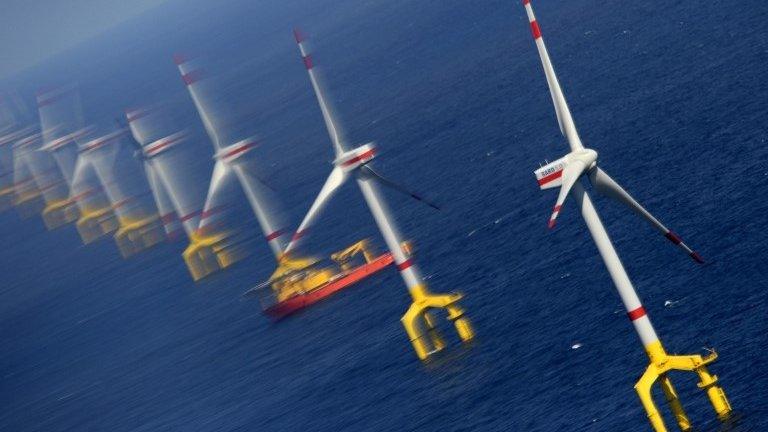
- Published1 April 2015
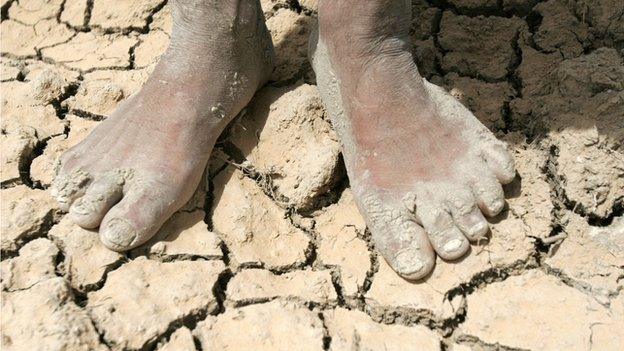
- Published31 March 2015
